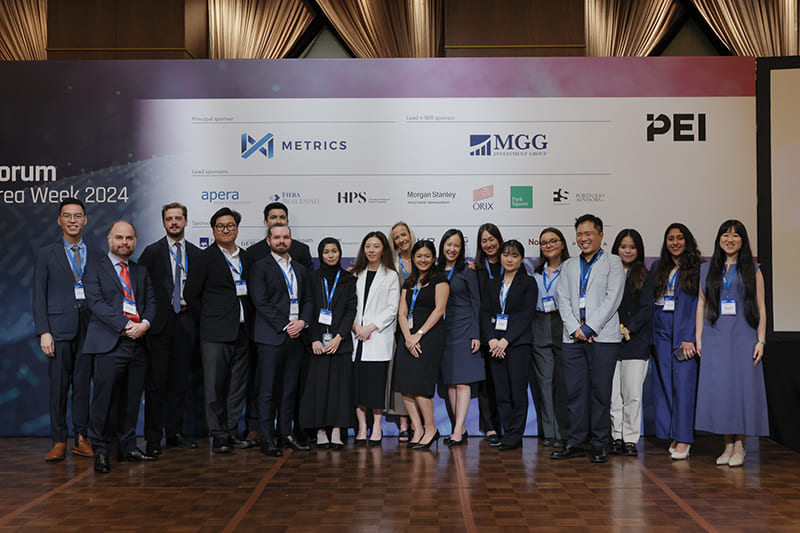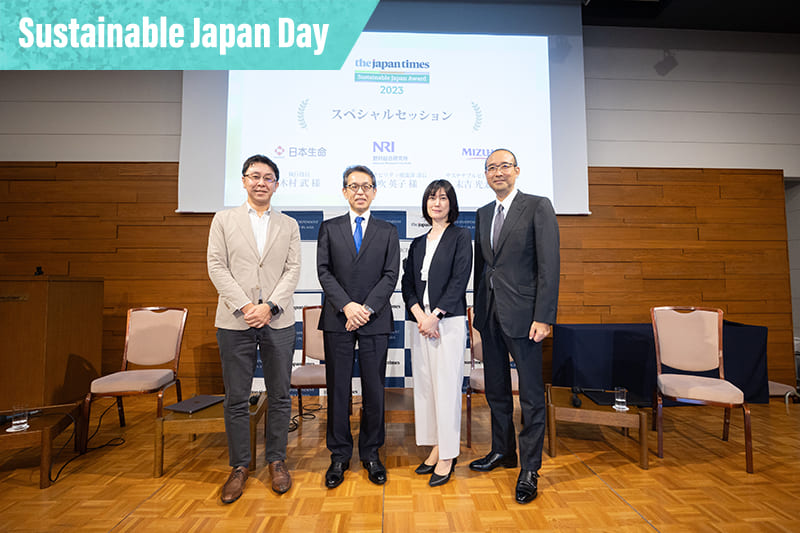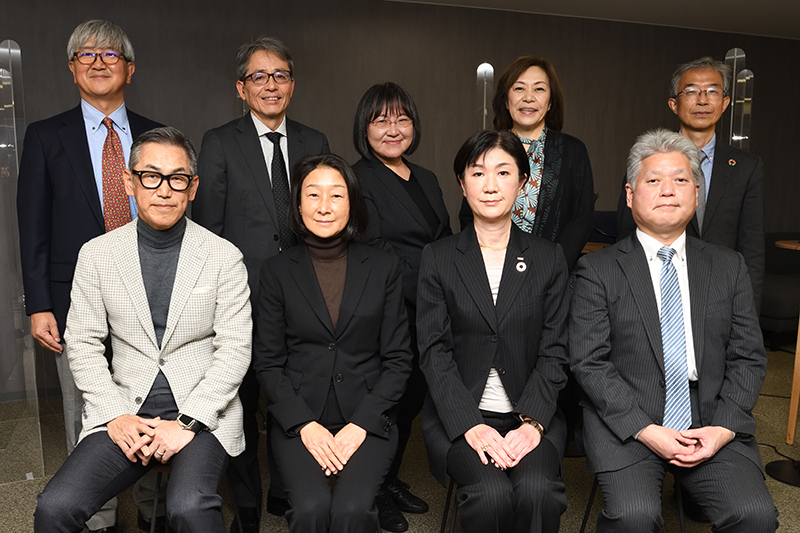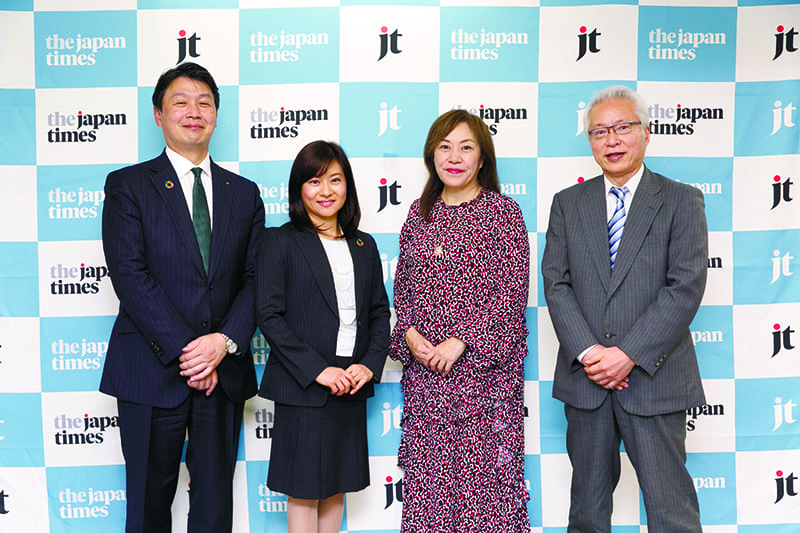October 27, 2019
Conference tackles ESG investment trends
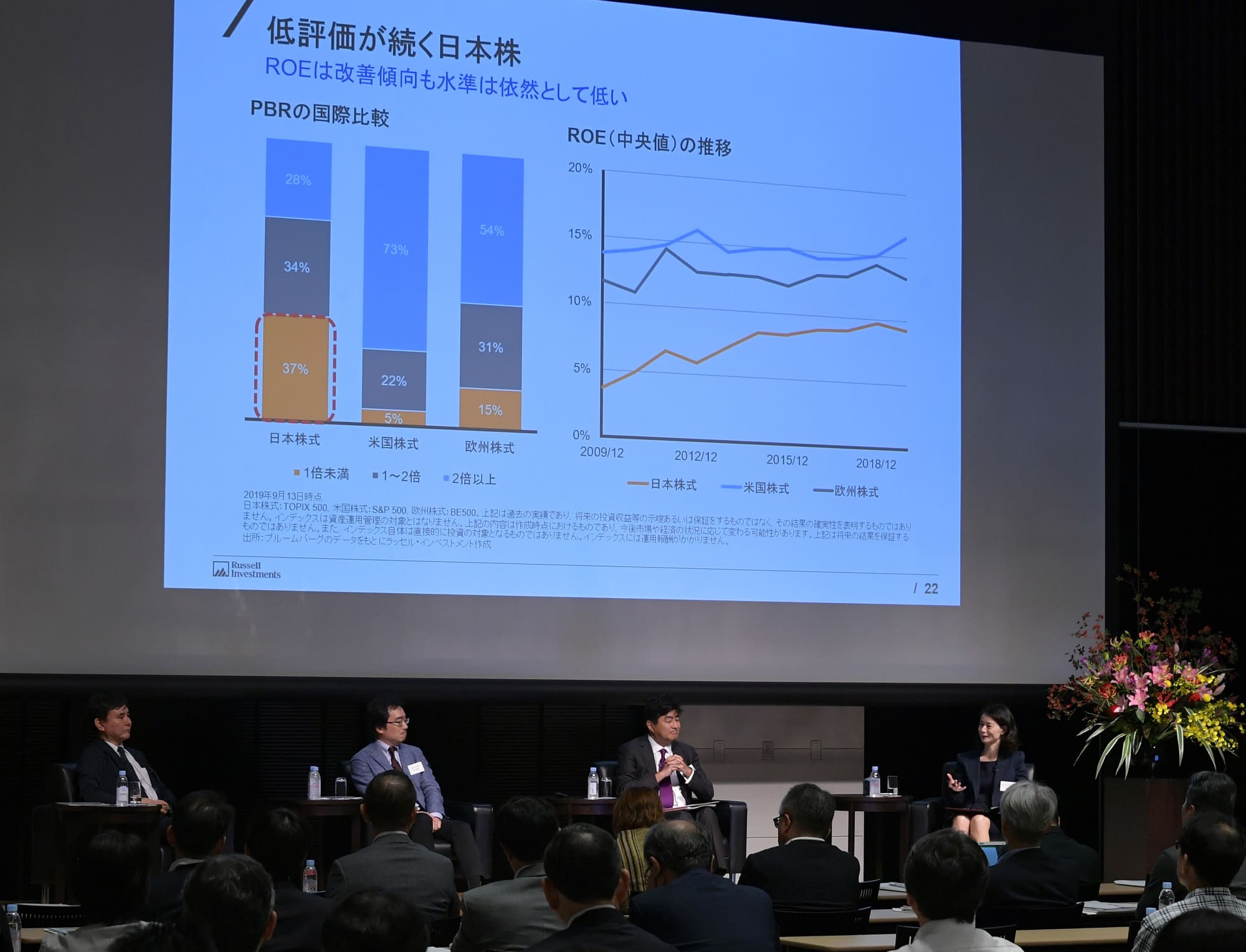
Business leaders and financial experts gathered in Tokyo on Sept. 26 to exchange their perspectives on the growing importance of environmental, social and governance (ESG) factors in the world of investment.
The 2019 Leaders’ Conference, featuring two panel discussions on the role and trend of investment, was co-organized by the Japan Times ESG Consortium and the Japan Center for International Finance and supported by Russell Investments Japan Co.
During the second panel discussion, three panelists — Masanaga Kono, Japan research representative of the Tokyo Office of Marathon Asset Management LLP; Yuya Shimizu, representative director and chief investment officer of Hibiki Path Advisors Pte. Ltd.; and Kenichiro Yamada, director of Asian Equity Research of Atlantic Investment Management — shared their views on the theme “Deepening ESG investments: engagement and integration.”
Moderator and Russell Investments Japan senior research analyst Kaori Tsujino kicked off the discussion by asking the panelists to introduce what type of investors they are.
Yamada explained that Atlantic Investment Management is a global equity hedge fund based in New York, specializing in investing in midsized firms. “We take a bottom-up approach based on fundamental research, and maintain constructive dialogues with our investees while ensuring liquidity,” said Yamada.
Shimizu of Hibiki Path Advisors explained that he positions his company as an activist investor who takes interest in improving Japanese companies through value investing.
Kono commented that his company, Marathon Asset Management, owns Japanese stocks worth more than a trillion yen, which the company actively manages for the long-term. “However, just holding onto those stocks does not make any profit,” he said.
Tsujino then asked about the role and examples of investors’ engagement with investees to pursue good returns and improve the evaluation of Japanese stocks.
Kono stressed the need to closely monitor if the entrusted share capital is being used adequately. “We are investing the money we have been entrusted by asset owners. Therefore, whether we can trust the management of our investees or not is a fundamental issue,” he said.
“At the same time, more and more companies are starting to announce clearer capital policies,” Kono said. “They also have more concrete ideas of returns for their shareholders, which is a good sign.”
Meanwhile, Shimizu said active engagement is an investor’s responsibility. “We do everything we think we should be doing from writing letters to the board, meeting outside directors directly, to asking questions at shareholders’ meetings while emphasizing that we are heading the same direction as the managers, making sure that we do not offend them,” he said.
“It is important that we maintain the relationship of trust with our investees even when our views on particular issues differ,” Shimizu said.
He also said that it is a responsibility of listed companies to think about 10, 20 and 30 years ahead. “So I keep asking if an investee company is prepared to spend the resources and pay costs necessary to become listed and take public responsibilities,” he said.
Yamada emphasized the importance of the constant dialogue with investees to avoid untimely mergers and acquisitions that could be risky for investors. “We talk with our investees, create proposals that could be useful for internal discussions, show examples of similar cases from overseas and so on,” he said. “The reason why we are dedicated to midsized enterprises is because the size enables active conversations with the management.”
Tsujino went on to ask their views on ESG investment. Yamada noted that ESG factors are becoming more and more important in the formation of stock prices. “It is even becoming mainstream. We need to keep an eye on how ESG indexes will be formed,” he said.
Kono of Marathon Asset Management pointed out that ESG reports should not be just a collection of data. “Investors need to be able to see how ESG factors are embedded in investees’ business models,” he added.
Yamada said, “For the last few years, investors in the U.S. are showing interest in the growth of ESG factors, especially governance, in Japanese companies.” He also suggested that ESG investment becoming mainstream could be a simultaneous risk and opportunity for growth for many companies.
“The key is whether you are capable of keeping up with changing government regulations. If you are, you already have an advantage in the ESG investment market. This is what investors should be looking at carefully,” he said.

